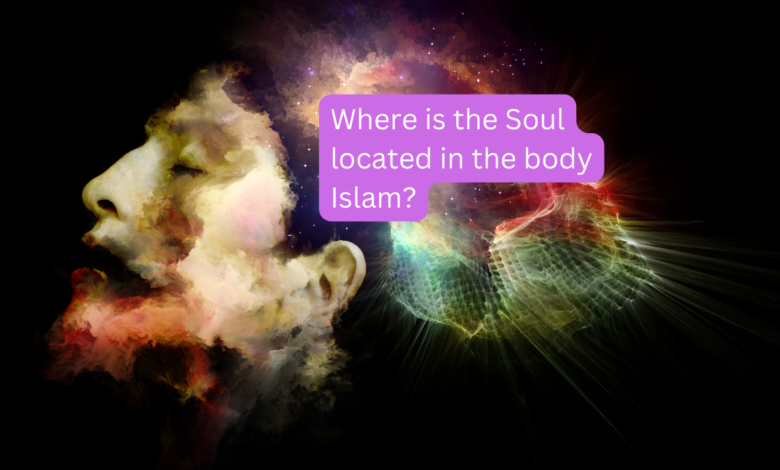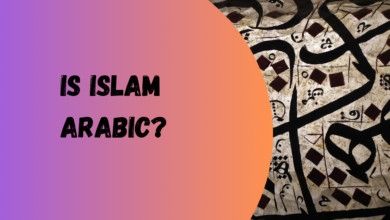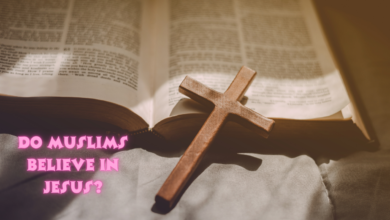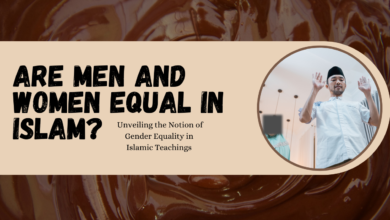Where is the Soul located in the body Islam?
The Mystical Essence Within: Islam's Concept of the Soul

Where is the Soul located in the body Islam?
In Islam, the exact location of the soul within the human body is not specified. The Quran and Hadith (teachings of the Prophet Muhammad) do not provide specific details about the physical location of the soul.

Introduction
The concept of the soul is a deeply philosophical and theological topic that has intrigued humans for centuries. In Islam, the soul holds a significant place in the understanding of human existence and spirituality. While the precise location of the soul in the body is a matter of debate among scholars, Islamic teachings offer insights into its nature and significance.
The Nature of the Soul
In Islam, the soul is known as “ruh.” It is considered an integral part of human existence, a divine creation, and a gift from Allah (God). The Quran, the holy book of Islam, provides insight into the nature of the soul, describing it as a creation and a mystery known only to Allah:
“They ask you, [O Muhammad], about the soul. Say, ‘The soul is of the affair of my Lord. And mankind have not been given of knowledge except a little.'” (Quran, Surah Al-Isra, 17:85)
This verse emphasizes that the true nature and essence of the soul remain known only to Allah, highlighting the profound spiritual aspect of the soul in Islamic teachings.
The Three Components of the Soul
Islamic scholars often describe the soul as having three main components:
- Nafs (Nafs): The nafs represents the lower self, which is inclined towards worldly desires and materialism. It is the aspect of the soul that can lead to negative behavior, such as greed, arrogance, and selfishness. In Islam, individuals are encouraged to strive for the purification and refinement of the nafs through spiritual growth and self-discipline.
- Ruh (Soul): The ruh is the core and divine essence of the soul, representing the spiritual connection between humans and Allah. It is believed to be created by Allah and instilled in every human being. The ruh is often associated with the concept of free will and the ability to make moral choices.
- Qalb (Heart): The qalb refers to the human heart, which is seen as the seat of emotions, conscience, and spirituality. It is the place where faith and belief reside. The Quran frequently mentions the importance of purifying one’s heart to attain closeness to Allah.

The Location of the Soul in the Body
The exact location of the soul in the human body is not explicitly defined in Islamic texts. Unlike some ancient philosophies or religious traditions that attribute a specific bodily location to the soul, Islam focuses more on the spiritual essence and significance of the soul rather than its physical placement.
However, some Islamic scholars and theologians have suggested that the heart (qalb) is the closest physical organ to the soul’s connection with the body. They argue that the heart is where the soul’s influence is most profound, as it is the center of consciousness, emotion, and spirituality. The heart’s condition is believed to affect one’s relationship with Allah and the choices they make in life.
Also check
- How to treat Women in Islam?
- What is Suhoor in Islam?
- Can you secretly get married in Islam?
- Where are the 25 Prophets of Islam in order?
- Surah Fajr’s Warnings Against Materialism and Greed: A Spiritual Reflection
Conclusion
In Islam, the soul is a divine and mysterious aspect of human existence, intimately connected with one’s spiritual journey. While the exact location of the soul within the body remains a subject of theological debate, its significance is unquestionable. The soul, represented by the ruh, is considered a divine gift from Allah and the core of human spirituality. Understanding and nurturing the soul, as well as purifying the heart, are central aspects of Islamic teachings, guiding believers toward a more profound connection with their Creator. Ultimately, the true nature of the soul remains known only to Allah, reinforcing the spiritual depth of this concept in Islamic faith.
FAQs About the Location of the Soul in Islam
Where is the soul located in the human body according to Islamic beliefs?
In Islam, the exact location of the soul within the human body is not specified. The Quran and Hadith (teachings of the Prophet Muhammad) do not provide specific details about the physical location of the soul.
Is there a specific organ or part of the body associated with the soul in Islamic teachings?
No, Islamic teachings do not associate the soul with any specific organ or part of the body. The soul is considered a spiritual and metaphysical entity rather than a physical one.
How is the concept of the soul understood in Islam?
In Islam, the soul (known as “nafs” or “ruh”) is understood as a divine creation of God that animates the human body. It is the essence of a person’s consciousness, emotions, and spirituality. The soul is believed to be eternal and is a crucial aspect of an individual’s existence.
Are there any verses in the Quran that mention the location of the soul in the body?
No, the Quran does not specify the physical location of the soul within the body. It primarily addresses the spiritual and moral aspects of the soul rather than its physical placement.
Do different Islamic traditions or scholars have varying opinions on the location of the soul?
While there may be various interpretations and discussions among Islamic scholars regarding the soul’s nature and attributes, there is a general consensus that the soul is a non-physical, spiritual entity. The specific location of the soul in the body is not a subject of significant theological debate within Islam.
Can the soul leave the body temporarily, as in the case of near-death experiences?
Islamic tradition includes accounts of the soul leaving the body during sleep or in specific situations, such as during near-death experiences. However, these experiences are not necessarily linked to the soul’s physical location within the body but rather its interaction with the physical realm.
How does the belief in the soul’s immortality affect Islamic practices and beliefs?
The belief in the soul’s immortality is central to Islamic teachings about the afterlife. It influences practices such as prayer, fasting, and acts of charity, which are seen as means to purify and strengthen the soul for its journey into the hereafter. The soul’s accountability for one’s actions in this life is a fundamental concept in Islamic ethics.
Are there any Islamic rituals or practices aimed at connecting with or purifying the soul?
Yes, Islamic practices such as prayer (Salat), fasting during Ramadan, giving to charity (Zakat), and performing acts of kindness are considered ways to purify and strengthen the soul. These actions are seen as means of spiritual growth and connection to God.
Is the belief in the soul’s immortality similar to other religious or philosophical traditions?
Many religious and philosophical traditions around the world share the belief in the immortality or eternal nature of the soul. While the specifics of these beliefs may differ, the concept of an enduring spiritual essence within individuals is a common theme in various faiths and philosophical systems.
Can individuals communicate with the soul, or is it solely a matter of personal spirituality and faith in Islam?
Islamic belief does not typically involve direct communication with the soul in the way that some belief systems may describe. Instead, Islam emphasizes prayer, supplication, and adherence to religious teachings as ways to nurture the soul’s connection to God and its spiritual growth.






